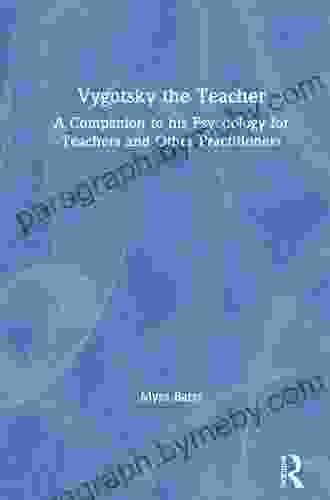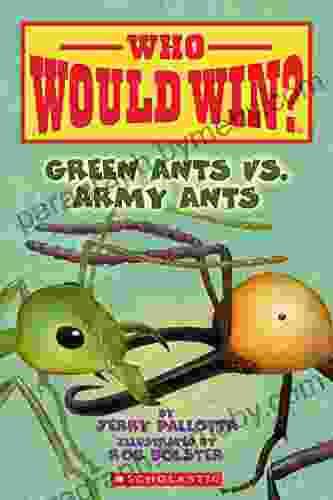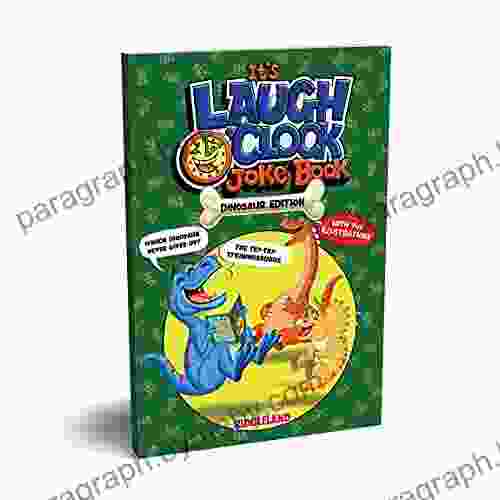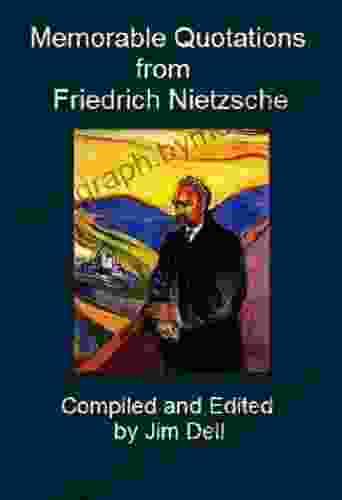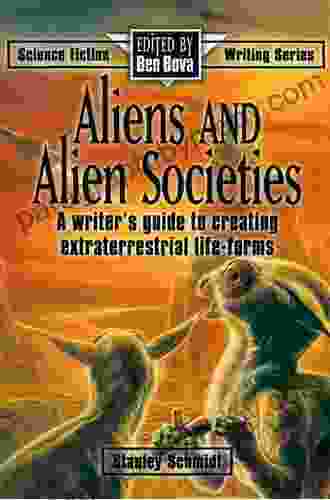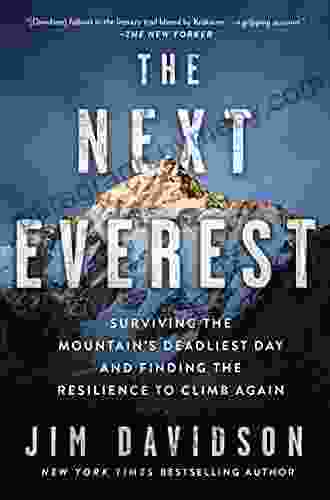A Guide to Jung's Psychology: A Companion for Teachers and Practitioners

Carl Jung's psychology is a complex and fascinating body of work that has had a profound impact on our understanding of the human psyche. Jung's ideas have been applied to a wide range of fields, including education, therapy, and the arts. This book is a comprehensive guide to Jung's psychology, written specifically for teachers and practitioners.
5 out of 5
| Language | : | English |
| File size | : | 751 KB |
| Text-to-Speech | : | Enabled |
| Screen Reader | : | Supported |
| Enhanced typesetting | : | Enabled |
| Word Wise | : | Enabled |
| Print length | : | 256 pages |
This book covers everything from the basics of Jung's theory to its application in the classroom and therapy. It is written in a clear and accessible style, and it is packed with examples and case studies. This book is an essential resource for anyone interested in Jungian psychology.
Chapter 1: The Basics of Jung's Theory
The first chapter of this book provides an overview of Jung's theory of the psyche. Jung believed that the psyche is made up of three main parts: the conscious mind, the personal unconscious, and the collective unconscious. The conscious mind is the part of the psyche that we are aware of. The personal unconscious is the part of the psyche that contains our repressed thoughts and feelings. The collective unconscious is the part of the psyche that is shared by all humans.
Jung also believed that the psyche is divided into two main attitudes: introversion and extroversion. Introverts are primarily interested in their inner world, while extroverts are primarily interested in the outer world. Jung also believed that the psyche is divided into four main functions: thinking, feeling, sensation, and intuition. Thinking is the function that we use to understand the world. Feeling is the function that we use to experience the world. Sensation is the function that we use to perceive the world. Intuition is the function that we use to imagine the world.
Chapter 2: The Application of Jung's Psychology in the Classroom
The second chapter of this book explores how Jung's psychology can be applied in the classroom. Jung's ideas can be used to create a more supportive and engaging learning environment for students. Jung's theory of the psyche can help teachers to understand the different needs of their students. Jung's ideas about introversion and extroversion can help teachers to create a classroom environment that is conducive to learning for all students. Jung's ideas about the four functions of the psyche can help teachers to develop teaching methods that appeal to all students.
Chapter 3: The Application of Jung's Psychology in Therapy
The third chapter of this book explores how Jung's psychology can be applied in therapy. Jung's ideas can be used to help clients to understand themselves and their relationships. Jung's theory of the psyche can help therapists to understand the different needs of their clients. Jung's ideas about introversion and extroversion can help therapists to create a therapeutic environment that is conducive to healing for all clients. Jung's ideas about the four functions of the psyche can help therapists to develop therapeutic interventions that appeal to all clients.
Chapter 4:
The fourth chapter of this book provides a summary of the main ideas presented in the book. It also discusses the implications of Jung's psychology for education and therapy. Jung's psychology is a valuable resource for teachers and practitioners who are interested in creating a more supportive and engaging learning environment for their students and clients.
References
Jung, C. G. (1921). Psychological types. London: Routledge.
Jung, C. G. (1953). The collected works of C. G. Jung. London: Routledge.
Stevens, A. (1998). Jung: A very short . Oxford: Oxford University Press.
5 out of 5
| Language | : | English |
| File size | : | 751 KB |
| Text-to-Speech | : | Enabled |
| Screen Reader | : | Supported |
| Enhanced typesetting | : | Enabled |
| Word Wise | : | Enabled |
| Print length | : | 256 pages |
Do you want to contribute by writing guest posts on this blog?
Please contact us and send us a resume of previous articles that you have written.
 Book
Book Novel
Novel Page
Page Chapter
Chapter Text
Text Story
Story Genre
Genre Reader
Reader Library
Library Paperback
Paperback E-book
E-book Magazine
Magazine Newspaper
Newspaper Paragraph
Paragraph Sentence
Sentence Bookmark
Bookmark Shelf
Shelf Glossary
Glossary Bibliography
Bibliography Foreword
Foreword Preface
Preface Synopsis
Synopsis Annotation
Annotation Footnote
Footnote Manuscript
Manuscript Scroll
Scroll Codex
Codex Tome
Tome Bestseller
Bestseller Classics
Classics Library card
Library card Narrative
Narrative Biography
Biography Autobiography
Autobiography Memoir
Memoir Reference
Reference Encyclopedia
Encyclopedia William L Briggs
William L Briggs Jessica Holsman
Jessica Holsman Jen Goodman
Jen Goodman Jessica Burkhart
Jessica Burkhart Kyle Chayka
Kyle Chayka Tsuta Suzuki
Tsuta Suzuki Katherine Johnson
Katherine Johnson Jim Cole
Jim Cole Prince Daniels Jr
Prince Daniels Jr Jeremias Prassl
Jeremias Prassl Jessi Dunnagan
Jessi Dunnagan Mike X Cohen
Mike X Cohen Jeph Loeb
Jeph Loeb Jenn Lim
Jenn Lim Jeff Shore
Jeff Shore Jeanne Moore
Jeanne Moore Stephanie Morales
Stephanie Morales Mila Braverman
Mila Braverman Jennifer Brady
Jennifer Brady Oren Klaff
Oren Klaff
Light bulbAdvertise smarter! Our strategic ad space ensures maximum exposure. Reserve your spot today!
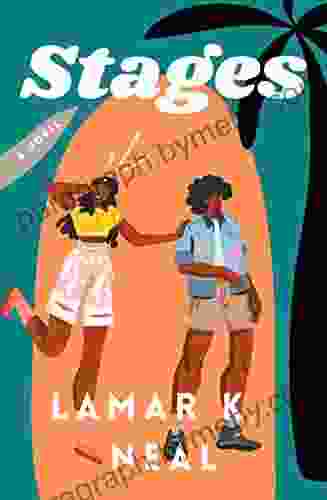
 William PowellUnveiling the Profound Journey of Stages: An Intimate Exploration by Lamar...
William PowellUnveiling the Profound Journey of Stages: An Intimate Exploration by Lamar...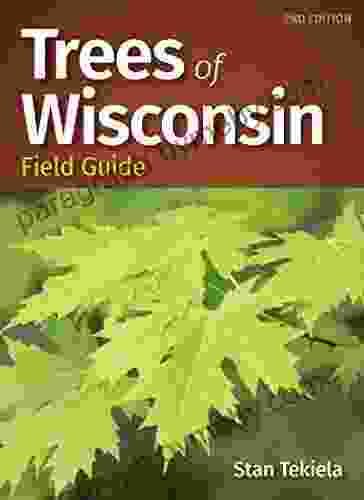
 Theodore MitchellTrees of Wisconsin Field Guide: Your Essential Companion to the Natural...
Theodore MitchellTrees of Wisconsin Field Guide: Your Essential Companion to the Natural...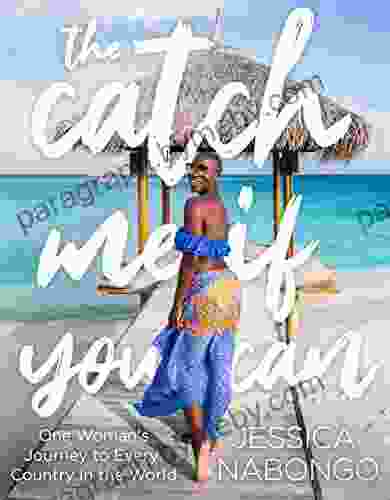
 Charles ReedThe Catch Me If You Can: A Thrilling True Story of Fraud, Forgery, and Felony
Charles ReedThe Catch Me If You Can: A Thrilling True Story of Fraud, Forgery, and Felony Corbin PowellFollow ·19k
Corbin PowellFollow ·19k Dennis HayesFollow ·5.6k
Dennis HayesFollow ·5.6k Drew BellFollow ·9.5k
Drew BellFollow ·9.5k Dwayne MitchellFollow ·12.6k
Dwayne MitchellFollow ·12.6k Jerry WardFollow ·17k
Jerry WardFollow ·17k Austin FordFollow ·11.1k
Austin FordFollow ·11.1k John ParkerFollow ·7.7k
John ParkerFollow ·7.7k Jake PowellFollow ·18.4k
Jake PowellFollow ·18.4k
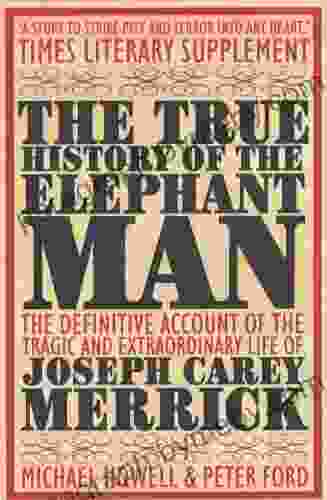
 Jeremy Mitchell
Jeremy MitchellUnveiling the Truth: The Captivating Saga of The Elephant...
Embark on a poignant journey through the...
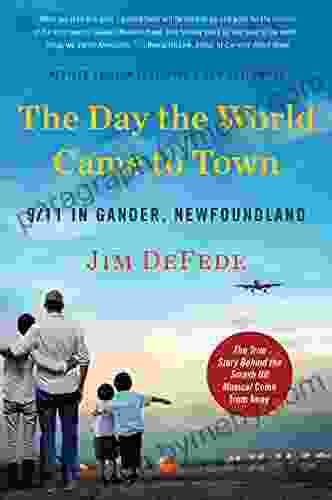
 Marvin Hayes
Marvin HayesThe Day The World Came To Town: A Heartwarming Tale of a...
In the quaint...
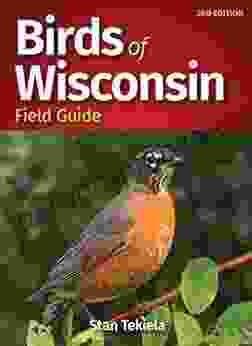
 Hugh Bell
Hugh BellExplore the Avian Treasures of Wisconsin: A Review of...
Unveiling the Secrets of...
5 out of 5
| Language | : | English |
| File size | : | 751 KB |
| Text-to-Speech | : | Enabled |
| Screen Reader | : | Supported |
| Enhanced typesetting | : | Enabled |
| Word Wise | : | Enabled |
| Print length | : | 256 pages |


